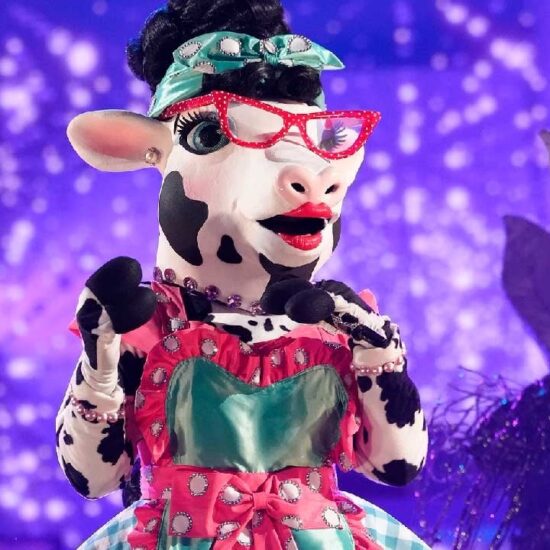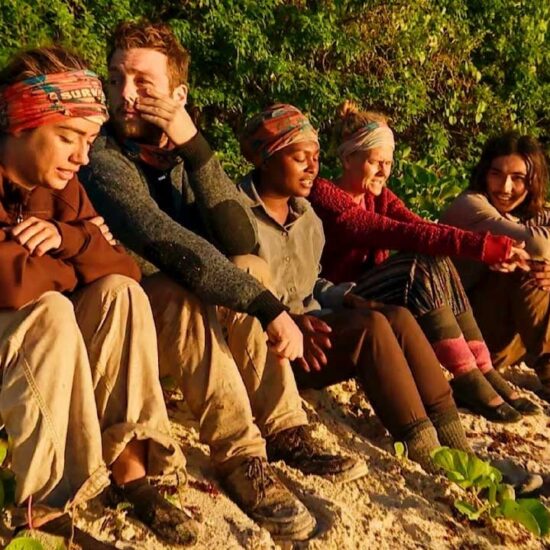

When we first landed on the shores of The Lord Of The Rings: The Rings Of Power, the kingdoms of Middle-earth were in a state of isolation. The Elves watched over Middle-earth, particularly the Southlanders, while Númenor thrived on the sea. But inside those kingdoms, resentment stirred. In the South, men detested their watchful eyes. Some would prefer the unblinking one of Sauron. And the Dwarves, for Durin’s part, felt abandoned by the Elves, who allowed their friendship to wither.
“Partings” complicates matters by challenging the allegiances of the characters, who will make unpopular choices in their communities. Most of those decisions, driven by gut instinct, cause tensions between outsiders and locals. Few reflect this better than Nori and The Stranger. The Harfoots actively avoid all other tribes because of the danger they pose. Not Nori, though. Her heart is open in ways others don’t understand, but does that come at a cost? “Am I a peril?” The Stranger asks Nori. “No, you’re here to help,” she answers. How does she know that? The Stranger’s purpose is so unclear that even he doesn’t know if he’s a danger to those around them. He’s certainly a danger to fireflies.
Are we born bad, or do we break bad? These are questions that “Partings” raises almost immediately, and it doesn’t have an easy answer. Each storyline refracts from one another, with characters dealing with the costs of being a stranger in a strange land, creating unforeseen dangers for those they care about. But, as is often repeated, “All that is gold does not glitter, not all those who wander are lost.” That’s easy for Gandalf or Poppy to say, but being Elf on the edge of extinction could create some lapses of judgment.
Assuming the Stranger is gold that doesn’t glitter, the Brandyfoots choose compassion over prejudice and welcome him into their caravan as they did for Poppy. Director Wayne Che Yip tracks their migration from the Old Forest to the Grove, following the food where it grows most abundant. Poppy’s mom’s beautiful walking song provides the soundtrack for Yip’s shots of the two wheelbarrows trekking across the marshes. We see the warmth inside the Brandyfoot family that heats those around them and those watching.
G/O Media may get a commission

Pre-order
Logitech G Cloud Gaming Handheld
Cloud Gaming System
This is a cloud-only device that will integrate with services such as Xbox Cloud Gaming. It will have a 7″ Full HD screen with a refresh rate of 60Hz and sustain 12+ hours of battery life.
But as we catch up with the other Harfoots, we see some of the distrust we’ll see elsewhere in this episode. Malva (Thusitha Jayasundera) encourages her husband Sadoc to banish The Stranger and the Brandyfoots, dooming the family unless The Stranger can prove he’s not a peril. Despite concerns, The Stranger shows his quality by saving Nori, Poppy, and Malva from a pack of wolves, injuring his arm. The Harfoots are willing to welcome him into the fold, but now Nori is having second thoughts. He creates magic but can’t totally control it, which frightens Nori. Maybe he is a peril.
Many on Númenor can relate. Galadriel and Halbrand haven’t exactly been welcomed with open arms by the Númenóreans. The sea may always be right, but an Elf in Númenor puts people on edge. Nevertheless, the Queen Regent is offering her navy to protect the Southlands. Sending her citizens to war is not a popular position, and Kemen (Leon Wadham) hopes to convince his father, Pharazón (Trystan Gravelle), to act. Of course, Kemen’s father would never take orders from an Elf, but Kemen doesn’t see the whole picture. If Númenor goes to Middle-earth, they can unite with the south and take control of trade routes and commerce. Pharazón sees the prospect of war as an opportunity, which should tell us everything we need to know about the guy.

Like Pharazón, the High King Gil-galad (Benjamin Walker) has ulterior motives. Hoping to smooth things over, the tactful Gil-galad invites Durin to dinner so he can give him the third degree about what’s happening in Khazad-dum. That’s all well and good, but Durin wants to know where he got this fine stone table, which the Dwarves would typically reserve for special purposes. Elrond eases the tension by reminding everyone that they’re here in good faith. Well, sort of. Later, Gil-galad and Celebrimbor come clean about their intentions: They know about the mithril, and it’s necessary for the survival of the Elves. Mithril contains the light of the Valar that keeps the Elves’ eternal souls healthy. Remember all that talk about trees last week? The one in Lindon is rotting. If the Elves don’t get mithril soon, they must return to the Undying Lands or die on Middle-earth.
These scenes exemplify the most frustrating aspect of the show. We know that the Elves know about the mithril and that Elrond was sent to confirm its existence, and it feels like we’ve forever for Elrond to catch up. Still, it does pose an interesting question for the future. There’s a Balrog somewhere in Khazad-dûm that we were introduced to this week—in a stylish flashback that felt like the show owning its visual language. In Fellowship Of The Ring, Saruman blames the unleashing of the Balrog on Dwarves delving “too greedily.” Is it possible that this is the Elves’ fault?
The speedy eight-episode season can cause some herky-jerky plotting. Some things feel rushed, like Bronwyn’s call to the men of the south to stand and fight, and others are stalled, like Galadriel in Númenor. It’s hard to be too mad about it, though. By the end of this first season, Rings Of Power will still be shorter than Peter Jackson’s trilogy, but spending some time in these locations has offered a chance to dive into characterization on levels other than plot. Most importantly, waiting for Galadriel to convince Míriel has allowed us to get to know Isildur.
Isildur has considerable Luke Skywalker energy. He’s rearing to go on an adventure and do something meaningful—just as his father did. But his ambition has led him astray. Isildur risked his friends’ well-being, cost them their jobs, and betrayed their trust (this sounds a lot like Elrond). The two-punch apology was funny, but it won’t get him on the ship for Middle-earth. With no other option, Isildur stows away on one, hiding near a ships oil supply. Unfortunately, Kemen is also led astray by ambition and attempts to blow up the ships, leaving Isildur to rescue him. It all works out for the latter, who gets a spot on a boat headed for Middle-earth, working as a stable sweep. He’s going to have to earn his spot.

Númenor better hurry up. On the watchtower Ostirith, the Southlanders are as split as the Númenóreans. Half want to stay and fight in a Helm’s Deep scenario; the other will kneel to Adar, who, like Arondir, Galadriel, and The Stranger, is an outsider too. Adar displays his power before the Orcs, forcing them to hold their skin to the sunlight. He wishes they could experience the sun as he does, complicating his character with a layer of sorrow. He almost seems to regret his decision to become a Dark Lord, but his motivations and allegiances are shifty. He’s an Elf living among Orcs, but when he’s mistaken for Sauron by the barkeeper, he is almost mad about it.
After forcing the barkeeper to kill Rowan, in a harrowing example of Adar’s brutality, we return to the top of the Ostirith watchtower, where Arondir trains Theo on the bow. Arondir explains his connection to the people he was supposedly policing all these years, so Theo reveals the hilt, which is actually a key. It’s easy to forget that Sauron’s forces built Ostirith, so when Arondir shows the sword statue, it feels a little convenient (sort of like that letter from a spy that outlined all of Sauron’s plan a few episodes back. Arondir has probably been looking at that statue for decades. Like the lighting that struck the tree and created mithril, it almost seems a little too convenient, like it was fated to be this way.
Where there was once isolation, we now see collaboration. Rings Of Power asks its characters to choose between their heritage and friends. Should Elrond betray Durin for the sake of the Elves? Should Míriel listen to King Palantir and cancel the trip to Middle-earth? Lord Of The Rings remains skeptical of political maneuvering, emphasizing the importance of genuine community connection and friendships to guide these characters to the light.
Appropriately, “Partings” ends with us setting sail for Middle-earth, the Orcs marching to Ostirith, and Elrond and Durin heading back to the mines. Elrond chose friendship over heritage, appealing to the goodwill of another for the benefit of all. Still, Gil-galad’s hard stare reminds us the conspiracy isn’t entirely unmasked. The last few episodes set up a series of showdowns, and if we had to guess. the Harfoots are heading directly toward the middle of it all. Nori says that The Stranger is here to help. Let’s hope she’s right.
Stray observations
- That closeup of Durin, where Owain Arthur leans into the frame and reassures Elrond, was lovely. Profile closeups of Durin were a winner last week, too. So I guess what I’m asking for is more.
- Speaking of things that make me happy, “This Wandering Day” is a banger. We want more songs on this show, please.
- Galadriel’s sword-fighting exhibition was a gas—excellent choreography, music, and performances. It was such a different kind of experience from, say, The Witcher’s opening duel. This show can calibrate action and violence remarkably well, making the sword-fighting light and exciting while not losing the horror of Adar’s blood tribute.
- The CG wolves looked a little jankier in this episode, but I appreciated the consistency of their skull shape and the skulls worn by the Orcs. The long snoot on the Orc masks gives them such unsettling quality.














